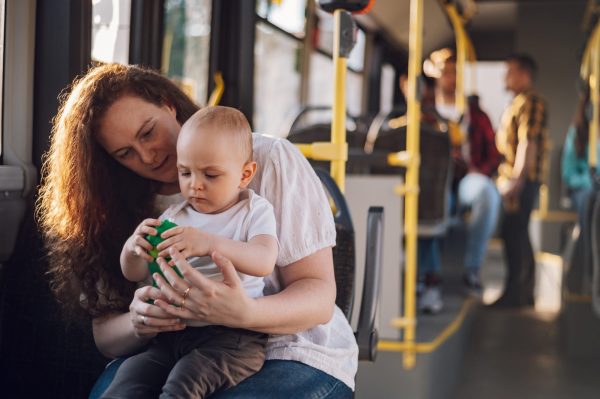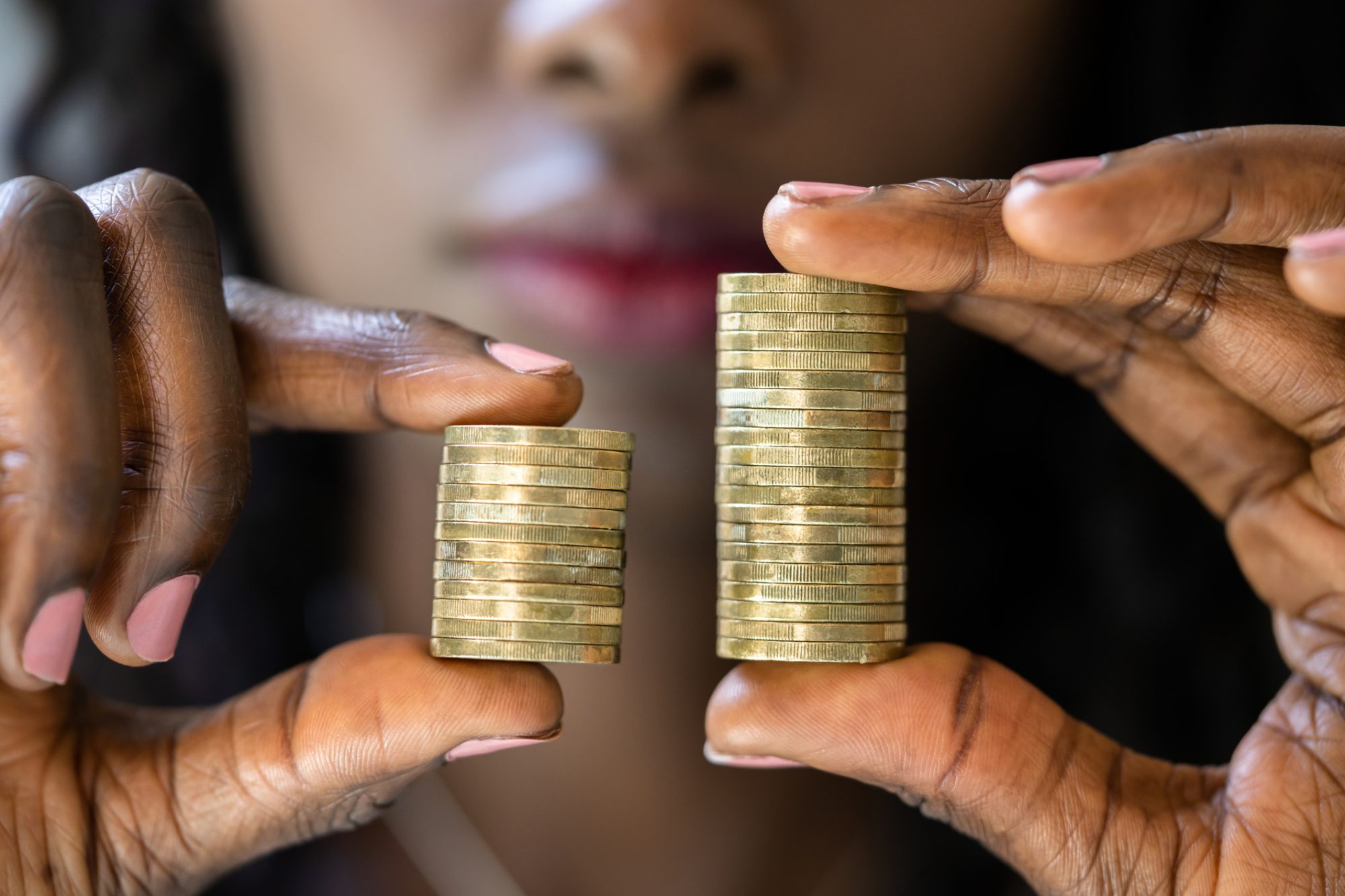
When you think of an economist, you probably think of someone focused solely on money and the bottom line.
But if you ask Alex Bernasek, economists are actually in the business of people.
“For me, economics is all about how to make the world a better place for people,” said Bernasek, a feminist economist and professor in the Department of Economics within the College of Liberal Arts. “You don't hear that very often, but for a lot of economists that's exactly what we're about. We want people's lives to be better. We want people to live lives that they value and that are meaningful to them.”
Unfortunately, much of mainstream economics is focused on indicators of progress that aren’t connected to how people actually live their lives. For instance, an increasing GDP per capita is often looked at as a measure of progress, Bernasek said. However, an increased GDP can also be tied to bad things, like the clean-up costs after an earthquake, or not calculate good things, such as unpaid or volunteer work done at home or in the community.

Perception as reality
“Perception is reality for many people, and so economists have to pay attention to peoples’ perceptions,” Bernasek said. “And there are misperceptions in so many different ways.”
Especially about economics itself.
“What people think about in terms of economics and what economics really is are actually quite disconnected,” Bernasek said. “So, one of our challenges as economists is to try to portray our discipline in a way that people understand.”
Many of the things that economists look at are the same things that the everyday consumer does. Things like: How did you decide on whether to buy one car versus another? What led you to focus on saving up for an item?
Those types of very practical things make sense, but Bernasek said there’s another side to economics.
What people think about in terms of economics and what economics really is are actually quite disconnected... one of our challenges as economists is to try to portray our discipline in a way that people understand.”
Beyond the numbers
“As economists, what we do is often very circumscribed,” Bernasek said. “So, we say, here it is, boom, boom, boom, this is what we found. But there's never a ‘why.’ I want to know the ‘why.’”
Much of Bernasek’s work focuses on gender and economics, particularly around inequality, such as the wage gap and the motherhood penalty. She has researched and written about self-employment in the U.S., health insurance and employment transitions, household financial decision making, the Grameen Bank in Bangladesh, women's informal sector work in developing countries, and maternity leave in developing countries.
One of Bernasek’s most well-known papers is also one she feels was the most misunderstood.
In her article “Are women more risk averse?” — written with fellow CSU economist Nancy Ammon Jianakoplos — Bernasek compared risk aversion between men and women. The study found that single women exhibited more risk aversion in financial decision making than single men.

But Bernasek was unsettled by the frequent misinterpretations that her research showed women “weren’t taking enough risks.”
“Why would you interpret the research of gender differences in a way that says women are doing the wrong thing?” she asked. “We see gender differences and immediately it becomes ‘women are not taking risks,’ and the immediate determination was that men were the reference point and women's deviation from that point was bad.”
In fact, Bernasek believes it could be interpreted that quite the opposite is true.
“My own professional judgment on this is that men take excessive risks, and we have an entire economic system that is based upon risk taking, and rewards that sort of excessive risk taking,” she said. “It does not reward conserving or being cautious, and I think that's really problematic.
“That research really led me in the direction that our system is misaligned with what's in our best interests as human beings, and that actually we'd be better off if everybody took fewer risks rather than women taking more risks,” Bernasek added. “I can't scientifically say that I can prove that. But I can say that looking at that research, looking at the economy that we live in — which is so oriented towards risk taking —- I do think that there's a misalignment with that and our goals as human beings.”
In addition, as a feminist economist Bernasek focuses on the economic inequities, not only looking at the source of that inequity but what can be done about it.
“We are not simply there to document inequality; we are there to address inequality, reduce inequality and promote equality,” she said.

The care penalty
One place that Bernasek sees this divide the most is in “the care penalty.” The money, opportunities and experiences missed out on while providing care either as a parent or by choosing a career in the care industry (social worker, teacher, day care employee).
How did caring for others become something we desperately need and yet, economically at least, valued so little?
For Bernasek, the answer goes back to economist Adam Smith’s Theory of Moral Sentiments (1759) and The Wealth of Nations (1776).
Smith saw economic activity as being productive — having a good or a service associated with it. He once famously wrote, “It is not from the benevolence of the butcher, the brewer, or the baker, that we expect our dinner, but from their regard to their own interest.” But according to Bernasek, feminist economists like to add that the butcher and the baker don't put dinner on the table; women do.
“Now I love Adam Smith, but this is a type of economic activity that he did not comprehend because it was outside of the market and he was very focused on the market and how markets function,” Bernasek said.
People are the element left out of the equation. If you don’t reproduce people, you don’t have a workforce, she said. That’s the real underlying foundation of the market. But in modern society there's a penalty to people — men and women — who produce and care for people. The role of caregiver is often not validated or valued and so those roles are often paid less and offered fewer opportunities.
It’s a perception problem, Bernasek said.
“Because there is a perception that that kind of work shouldn't be motivated by money; it should be motivated by something deeper because you care,” she said. “But if it's valued and it's valuable, then it should be valued and valuable. Why should you be penalized because you care?”
"There is a perception that [caregiving] is the kind of work that shouldn't be motivated by money; it should be motivated by something deeper because you care."
Pushing back
Economists in general understand this divide but seem resistant to push back on it, Bernasek said. It’s one of the reasons she loves working in CSU’s Department of Economics.
“We do push back,” she said. “Every day, we try to make our case — in policy, in the classroom, in our research.”
Today people are more aware of the barriers that are holding diverse groups back as well as the possibilities that can propel us forward, Bernasek said.
“There are a lot of impediments with economic power and political power, but there are people who see them and are working to change them and change those perceptions,” she said.
New perspectives
Bernasek believes continuing to diversify the field will be key to that endeavor.
“Thirty years ago, I had no female role models, no female professors, not a single female professor my entire Ph.D.,” she said. “It was not a hospitable place for a woman. It was not a hospitable place for people of color. But with enough folks understanding that and trying to change things, that's where we hope we make a difference and bring in more people from all backgrounds and perspectives. Society is made up of people who experience the world in different ways, and as economists it's not our job to judge them. It's our job to think about how we make a world that supports as many people as we possibly can.
“For me, economics has the potential to be so powerful and transformative,” she added. “But it's hard because you're pushing against something that's been there for a very long time.”
While that does make for some frustrating days, Bernasek remains hopeful.
“Sometimes it's two steps forward, one step back; sometimes it's one step forward, two steps back,” she said. “But when I talk to students, they’re the ones that give me hope, because they're so smart and they're so committed. They’re why I love what I do, because I get to interact with them, and I get to support them. They're the future, and it's definitely a better future.”
